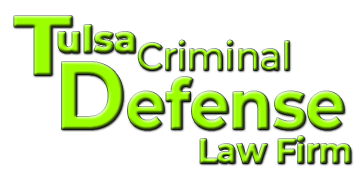Pretrial Motions: An Important Part of Your Defense

As a criminal case heads for trial, your attorney may want to bring certain pretrial motions that can help shape your defense. These motions are legal requests made by either the defense or the prosecution before the trial begins. These motions have significant impacts on how a trial is shaped, the evidence allowed and suppressed during the trial, and other factors. They are brought before the trial begins. This post discusses some typical pretrial motions.
Typical Pretrial Motions and Their Purposes
Motion to Dismiss: A motion to dismiss asks the court to dismiss the charges against you. The motion can be based on such grounds as insufficient evidence, illegal search and seizure, or other improper procedures. The purpose is to protect your rights and the judicial system as a whole.
Motion to Suppress Evidence: A motion to suppress evidence seeks to exclude certain evidence from being presented at trial, typically on the grounds that it was obtained illegally or in violation of the defendant’s constitutional rights. For example, if the police conducted a search without a warrant or probable cause in violation of your rights, your attorney can ask the court to suppress all evidence obtained from that search. This may result in the prosecution having insufficient evidence to convict at trial resulting in a dismissal of the charges brought against you.
Motion for Change of Venue: This is a motion almost always brought by the defense rather than by the prosecution in a criminal case. A motion for change of venue requests that the trial be moved to a different location. This is often based on concerns that a fair and impartial jury cannot be found in the original venue due to pretrial publicity or community bias. For example, when a high-profile case or high-profile defendant is being brought to trial, often the case has been covered extensively in local news media and it may be difficult to pull a fair and impartial jury from the local jury pool.
Motion for Discovery: Discovery is a complex process in which parties request and obtain information relevant to the case from the opposing side prior to trial. When the production of evidence in response is lacking or incomplete, a party may bring a motion to compel the production of that evidence from the opposing party. In a criminal matter this might mean a motion to compel the production of police reports, witness statements and the like.
Motion for Severance: This motion asks the court to separate the trials of co-defendants or to separate charges into different trials. It is typically filed to prevent prejudice that might arise from being tried alongside co-defendants or for multiple charges at once. In the case of multiple defendants, it may be necessary to have separate trials in order to avoid potential conflicts of interest between the defendants.
Motion in Limine: This is a type of pretrial motion that may be brought in the last few days before trial. Typical motions in limine may include such things as to exclude witnesses from the courtroom until it is their time to testify in order to avoid tainting their testimony, or to exclude certain evidence from being mentioned or introduced during the trial until its admissibility can be determined outside the presence of the jury. A typical example is to exclude prior criminal records of the defendant from being mentioned in court, arguing that it is prejudicial.
Motion for Continuance: A motion for continuance requests to postpone the trial to a later date. Reasons for this motion can include the need for more time to prepare the case, the unavailability of a key witness, or other unforeseen circumstances. An example of a typical motion for continuance arises when new evidence comes to light close to the trial date. The defense may request a continuance in order to have adequate time to investigate and incorporate the new evidence into their strategy.
Motion to Quash: This motion challenges the validity of a subpoena or other legal process, seeking to nullify it. This is often brought when a party feels that a subpoena is issued improperly or for an irrelevant or burdensome request, the defense or prosecution might file a motion to quash it.
These pretrial motions are essential tools in Oklahoma criminal cases, allowing both the defense and prosecution to address legal issues that could affect the trial. These motions help ensure that the trial proceeds fairly, that the rights of the defendant are protected, and that the evidence presented is both relevant and obtained lawfully. Effective use of pretrial motions can significantly influence the dynamics and outcome of a criminal trial. Each criminal case is different, and your Tulsa criminal attorney may bring some or all of these pretrial motions depending on the circumstances of your case. Consult with your attorney to fully understand the impact that these types of motions can have on your case.
Consult with a Tulsa Criminal Defense Attorney
Pretrial motions can have a significant impact on your case. Your attorney can help you understand their purpose and objectives in your case. Consult with a Tulsa criminal defense attorney at the Tulsa Criminal Defense Law Firm. Call today at 918-256-3400. We can provide personalized guidance based on your unique situation.
We are dedicated to providing reliable legal advice and representing clients throughout the criminal process. Together, we can navigate the complexities of the criminal court process and work towards a positive outcome.
